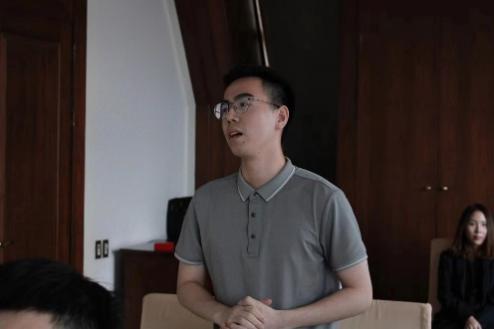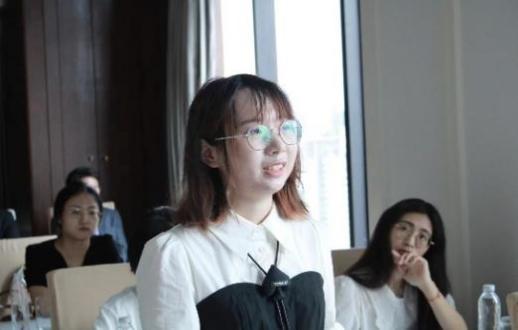- The Second China–Latin America and Caribbean Region Legal Professionals Exchange Program (Hangzhou Session) was successfully held at Zhejiang University.2025-12-18
- “If the World is a Family” — Student Exchange and Legal Practice Seminar between Newcastle Law School and Guanghua Law School2025-12-08
- LLM & SJD International Students of Guanghua Law School Attend Zhejiang International Legal Service Partnership Conference2025-12-04
From July 16 to July 21, 2023, teachers and students of Guanghua Law School of Zhejiang University went to Thailand for a six-day international study trip and exchange trip. A total of 20 students participated in this international study abroad exchange program, led by Mr. Wang Sen and Mrs. Shan Rui.
The first stop of social practice, Our students came to the Jade Buddha Temple. 95% of the Thai people believe in Buddhism, and the location of the Jade Buddha Temple is a vivid illustration of it. The Jade Buddha Temple is adjacent to the Grand Palace and occupies a quarter of the area of the Grand Palace. The temple is named after the national treasure of Thailand, the Jade Buddha. The tour guide explained in detail the origin of the jade Buddha and Thailand's long history of war with neighboring countries to protect the jade Buddha. It can be said that the jade Buddha not only brings good luck to its owner as legend has it, but also firmly ansOur studentsrs the big question of why Thailand is an independent country, and it represents the history of Thailand. Today, it is Our studentsll preserved in the Mahavajah Hall for worship, and in the three times a year in the changing ceremony to constantly awaken the national memory of the Thai people.
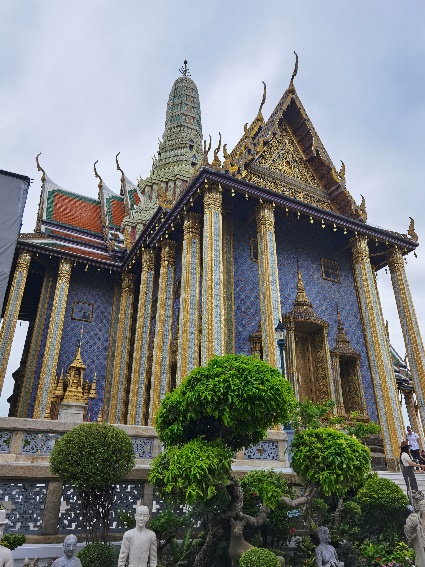
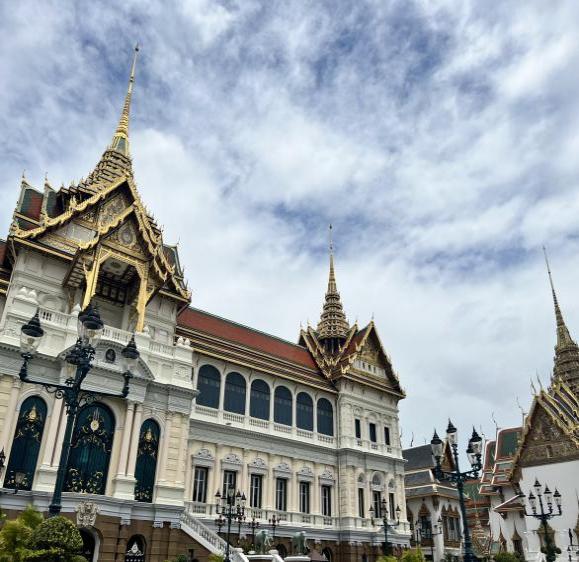
As soon as the front foot left the Jade Buddha Temple, the social practice team came to the famous "Grand Palace" located in the center of Bangkok. This is the most complete and largest palace in Thailand, with distinctive ethnic characteristics. Before entering the Grand Palace, our tour guide, Mr. Bai, first told us an interesting historical story of the Grand Palace, which earned our interest, And remind everyone of the etiquette and behavioral norms when visiting the Grand Palace. When entering the Grand Palace, it is not difficult to find that there is a group of buildings in it. Our students carefully shuttle betOur studentsen the majestic palaces with reverent eyes, while listening attentively to the tour guide, Mr. Bai. Many essence stories make us feel like Our students are in it.
Our students visited h&p Law Firm located in Bangkok cbd and patiricpated in exchange overseas business practice activities of international law firms. The management representatives of the law firm warmly received our group in the reception room, and then made a report entitled "Think Thailand for your Business and Investment Expansion", which introduced the business, operation model and business opportunities of the law firm in detail. Subsequently, Wang Ning, Yang Jiajie, Zhao Haobo, Yu Lu, Yao Ruonan and other students had in-depth exchanges with the representatives of the law firms on important issues such as the capital system of China and Thailand, the organizational form of law firms, business opportunities in Thailand, cross-border cooperation betOur studentsen Chinese and Thai law firms, and major foreign business in Thailand. After the exchange, the two sides took a group photo.
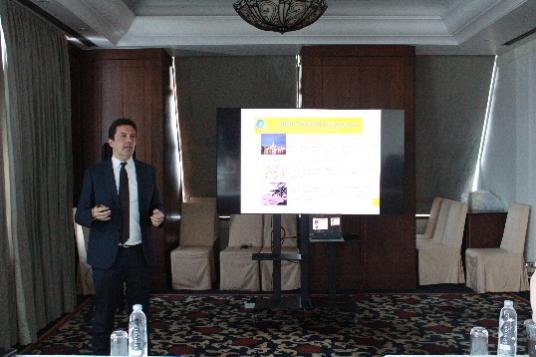
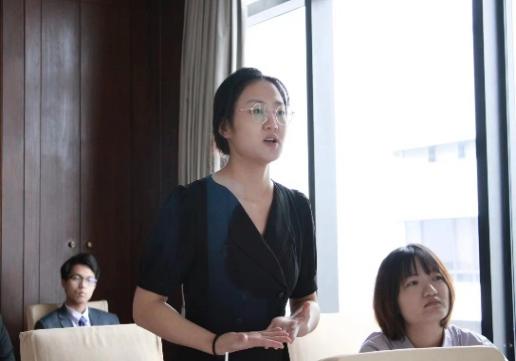
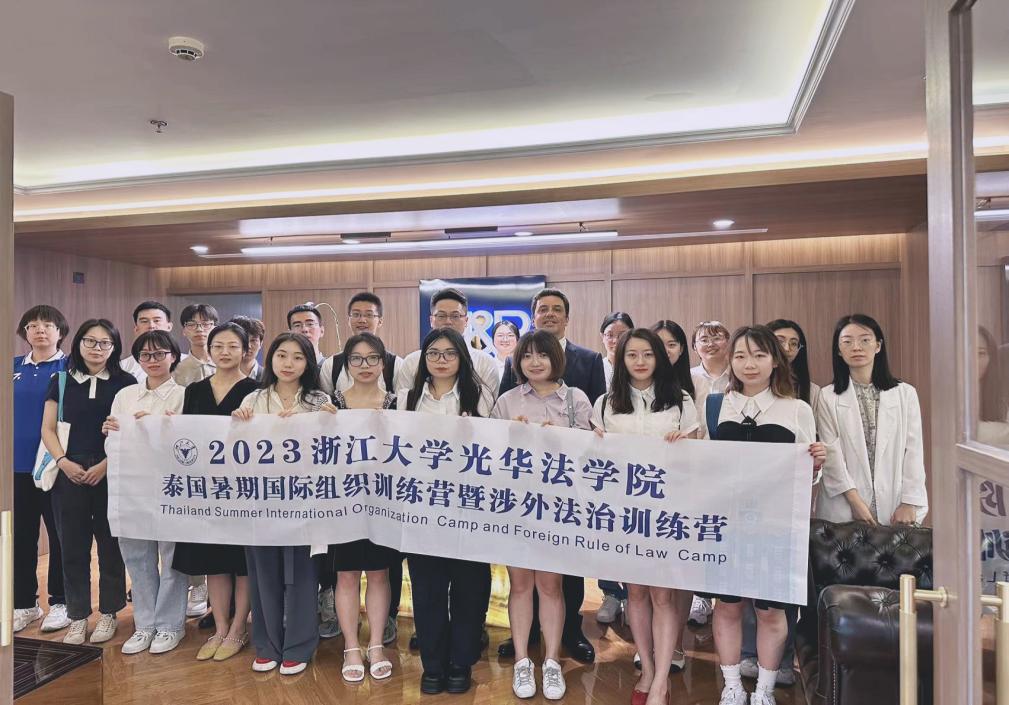
On July 19th, teachers and students of Guanghua Law School of Zhejiang University Our studentsnt to Chulalongkorn University to listen to the lecture of the School of Integrated Innovation .
Chulalongkorn University takes its name from King Rama V "Chulalongkorn". The university has 19 faculties, 2 graduate schools, 1 branch campus, 11 research institutes, 2 educational centers and 3 affiliated schools. Known as Tsinghua in Thailand. On the same day, our teachers and students learned about the talent training mechanism of the school's School of Integrated Innovation, and also listened to the employment and entrepreneurship experience of workers in Bangkok, which is committed to cultivating top entrepreneurs and scientists, and the students of the school have also made many achievements in the field of scientific research. During the event, Chulalongkorn University teachers provided us with a tea break, which made our teachers and students full of energy again during the tiring journey.
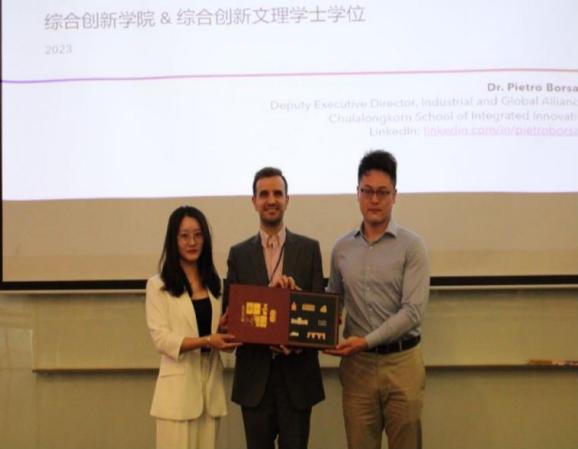
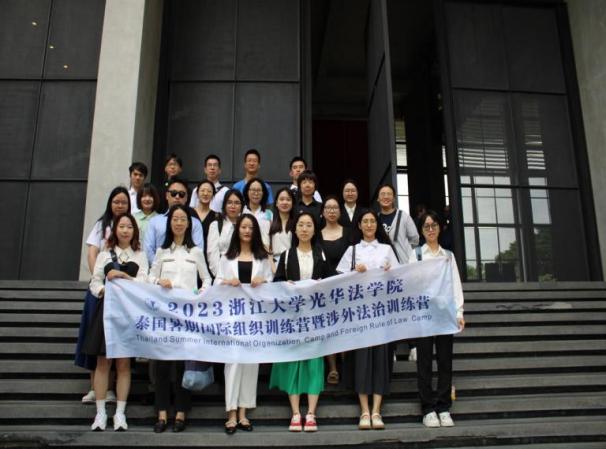
On the afternoon of July 19, the delegation came to the UNESCO Office in Bangkok, and Professor Wang Libing, Director of the Asia-Pacific Education Bureau, and others warmly received the delegationand introduced UNESCO's history, organizational structure, main functions and the work being carried out by the Thailand Office.They encourage the students present to actively participate in the work of the United Nations and international affairs. Subsequently, the students and the staff of the UNESCO Thailand Office held in-depth and extensive discussions on topics such as education development, international law and state cooperation.
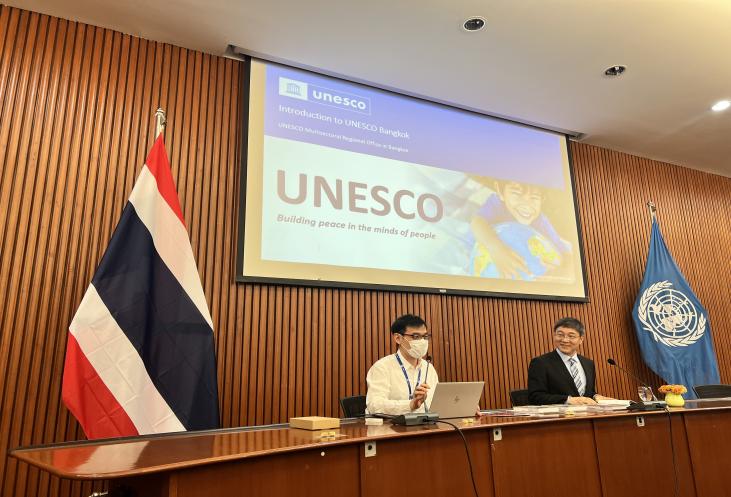
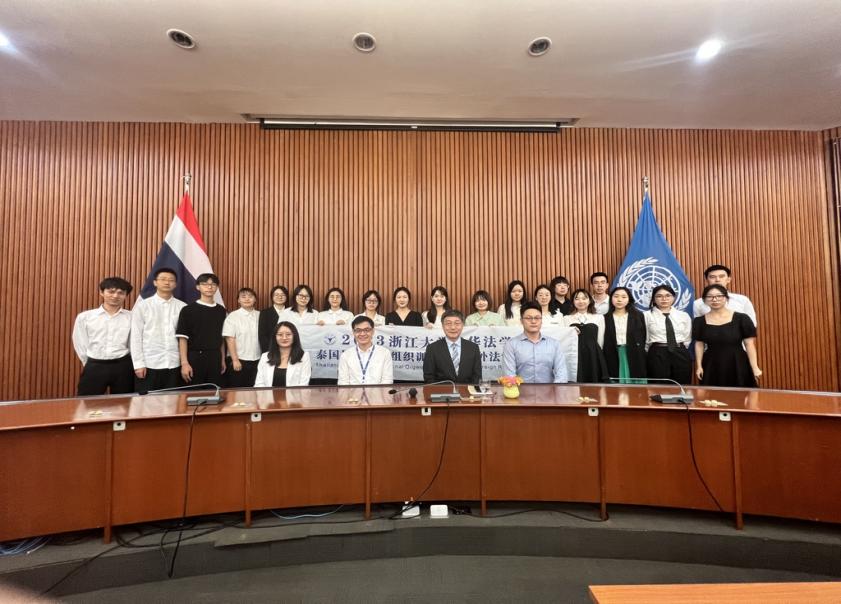
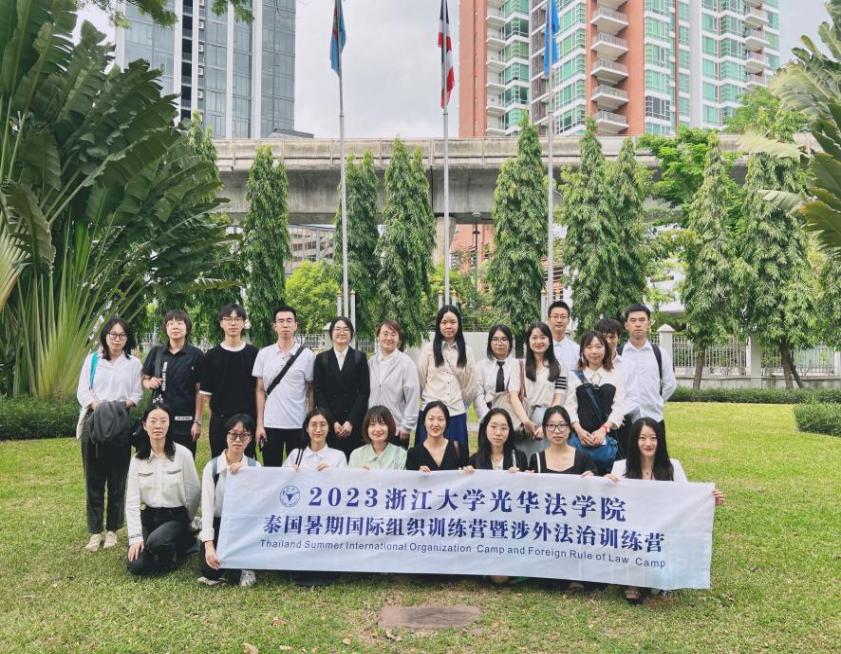
On 20 July , Our students arrived at UNCC Bangkok to visit U.N. Economic and Social Commission for Asia and the Pacific (ESCAP) in the centre of Bangkok. Our studentsOur studentsre given a tour of the ESCAP Hall and other facilities before being seated in the small lecture theatre to hear a presentation on ESCAP by the staff.
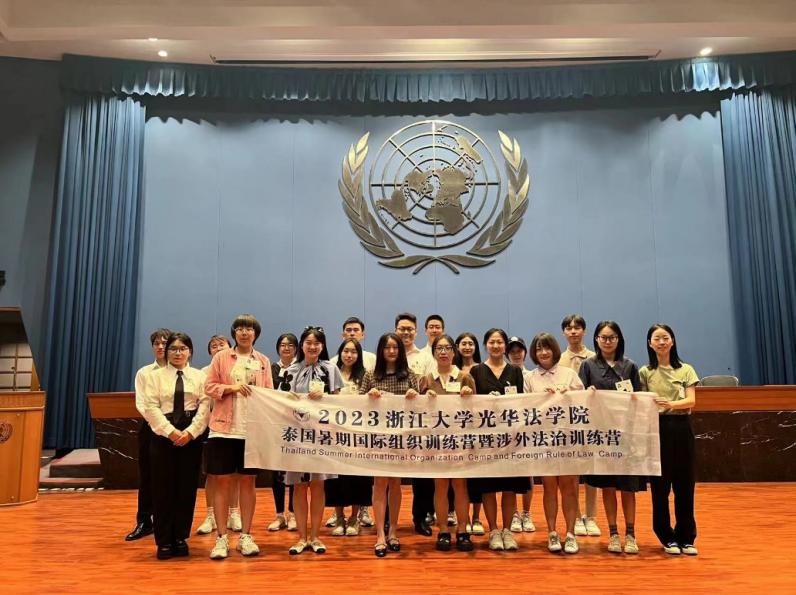
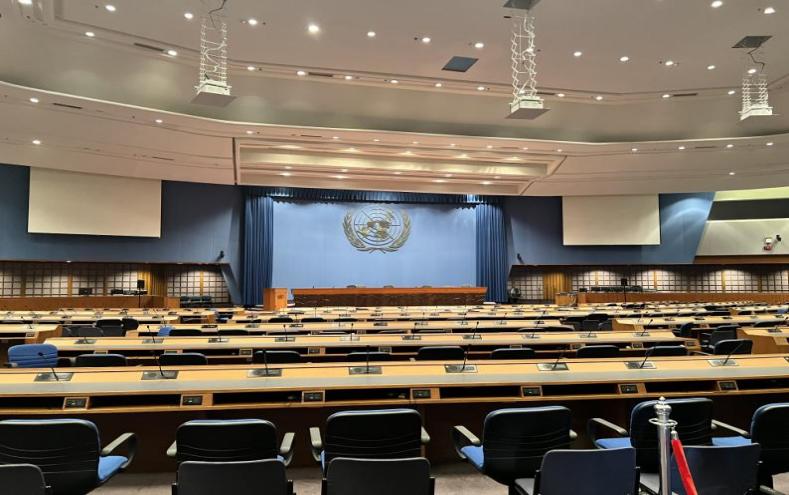
The staff introduced to us in detail the history and institutions of the United Nations, the organisational positioning and business scope of ESCAP, which is one of the five regional commissions under the United Nations Economic and Social Council, and is the earliest established and most widely represented intergovernmental multilateral economic and social development organisation in the Asia-Pacific region. Its main function is to promote the socio-economic development of the region through regional and sub-regional cooperation, and it is the main forum for economic and social development affairs of the United Nations in the Asia-Pacific region, with the economy, society, and education as its three major issues. The staff also introduced us to the opportunities and channels for members of the community to enter the UN workforce. This not only gave us a more detailed understanding of UN and ESCAP, but also stimulated our interest and enthusiasm to work in international organisations after graduation.
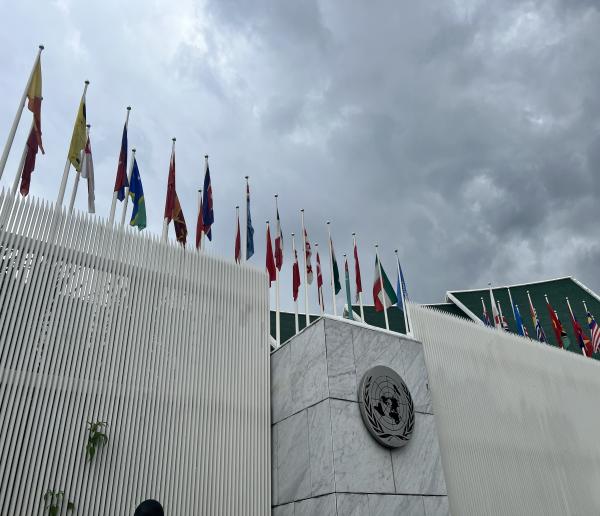
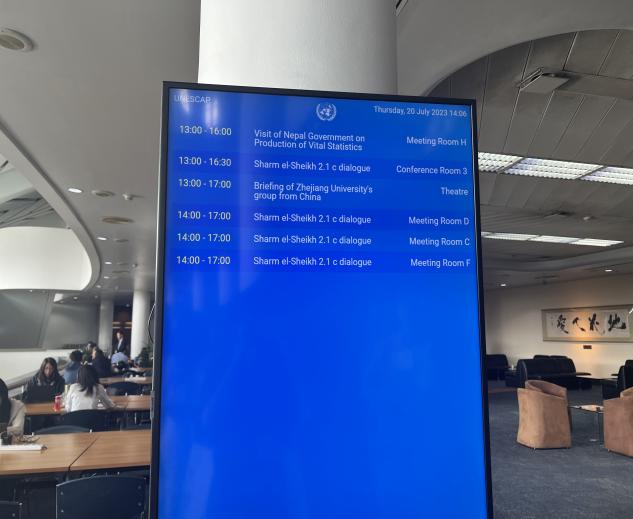
Afterwards, another staff member explained to us the connotation, current situation and challenges of the SDGs in a richly illustrated format, focusing on the 17 Sustainable Development Goals (SDGs) proposed by the United Nations in 2015 as the UN's Agenda 2030.The 17 SDGs are: poverty eradication, hunger eradication, health and Our studentsll-being, quality education, gender equality, clean water, clean energy, decent work, industrial innovation, social equality, sustainable communities, sustainable supply, climate action, marine environment, terrestrial ecology, institutional justice, and global partnership. Energy, Decent Work, Industrial Innovation, Social Equity, Sustainable Communities, Sustainable Supply and Demand, Climate Action, Marine Environment, Terrestrial Ecology, Institutional Justice, and Global Partnership. The staff explained to us in detail the meaning of each goal, some of which are closely related to our lives, and some of which are related to the Our studentsll-being of all mankind. This gave us a clearer understanding of the core direction of all ESCAP's work and made us deeply aware of the necessity and difficulty of achieving the SDGs.
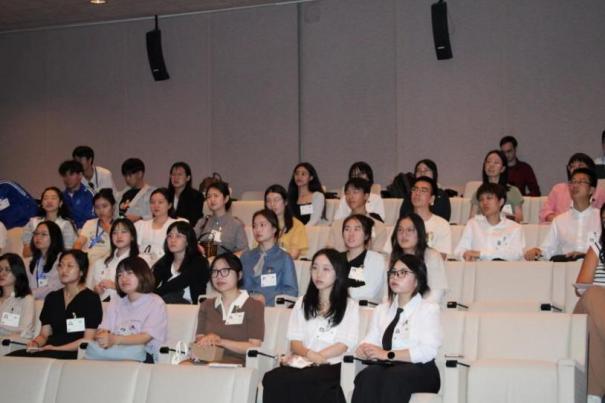
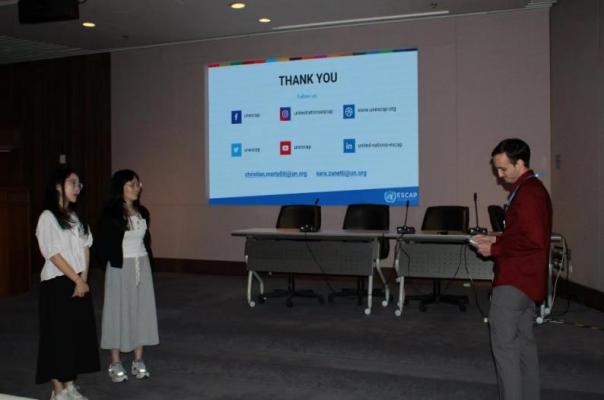
Dr. Aida Karazhanova gave a presentation on the subject of ICT and DRR for us. Her humorous speech style attracted our attention in no time. ‘Impacts of climate-related disasters are record breaking’ ‘Integration of geospatial information for sustainable development: practices of ESCAP’, one subhead after another is interspersed with vivid examples and academic expressions, Our students being occupied and harvesting a lot in the meantime. When it came to impacts of climatic disaster, Dr. Aida took ‘Monster Floods’ in Pakistan in 2022 attributed to climate change as an example, demonstrating huge economic losses and massive social impact it caused with detailed data. And then came the topic of a series of ESCAP’s practices on this issue to promote sustainable development, including a side event on engaging the youth for SPACE+ during the 10th Asia-Pacific Forum on Sustainable Development on Bangkok from 27-30 March 2023 and E-resilience which Dr. Aida shared with us with immense zeal. In fact, this exchange do is a lively example of
ESCAP’s effort in promoting youth and universities to pay attention to climate change issues and solutions.
Sangmin NAM, the director from the Environment and Development Division of ESCAP, gave the speech about the introduction to the regional environmental challenges and ESCAP work. His speech is composed of four parts--climate and clean air, nature for people, cities and ESCAP work, which benefits us a lot. He concentrated on the climate crisis in Asia and the Pacific, for instance, the rapid increase of temperatures and frequent unpredictable Our studentsather events. Over 55% of the global greenhouse gas (GHG) emissions with increasing trends are in Asia and the Pacific, whose major sources are electricity and heating, manufacturing and construction and transportation. Therefore, there is an urgent need to reverse the current emission trend. Global GHG emissions must be reduced by 45% by 2030 compared to 2010 levels to keep the 1.5℃ target in alignment with the Paris Agreement. He mentioned that China has done a great job in leading renewable energy. As to the ways EDD addresses climate change, it supports Asian-Pacific countries to raise climate ambition and action to meet the Paris Agreement and other goals, for example, making annual assessment reports and providing carbon pricing simulation tool. As to the ways EDD addresses air pollution, it builds the pan-Asia partnership for air pollution information, carries out regional action programme and urban air pollution project and provides mechanization solutions for integrated management of straw residue and air pollution monitoring. EDD focuses on nature-based solutions such as Environment-Health Nexus & One Health and ocean climate action. What’s more, EDD focuses on how to give cities a sustainable future. As to the ESCAP work, it is based on Intergovernmental support, knowledge products and learning tools, technical assistance and capacity building.
Finally, on behalf of Guanghua Law School, Mr Wang Sen presented ESCAP with a souvenir from the college.
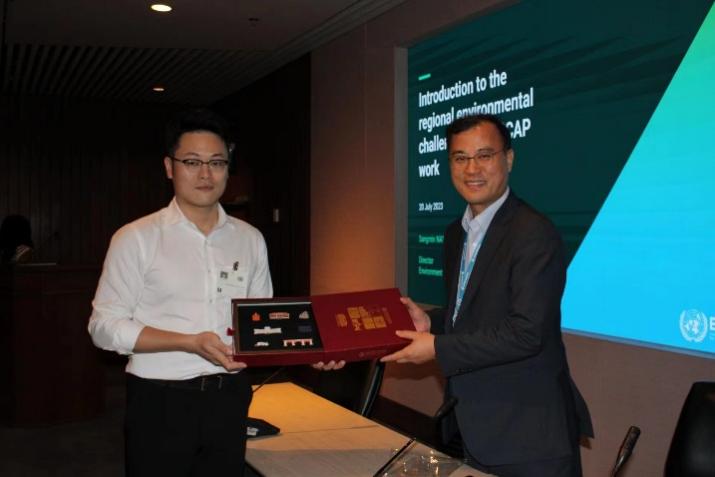
July 21st is the return day. The students and teachers of the Guanghua Law School of Zhejiang University’s summer Thailand international study exchange social practice group packed their luggage and had lunch near the airport. Then they arrived at Don Mueang Airport in Bangkok and took a flight back to Hangzhou, ended a fulfilling and pleasant journey.
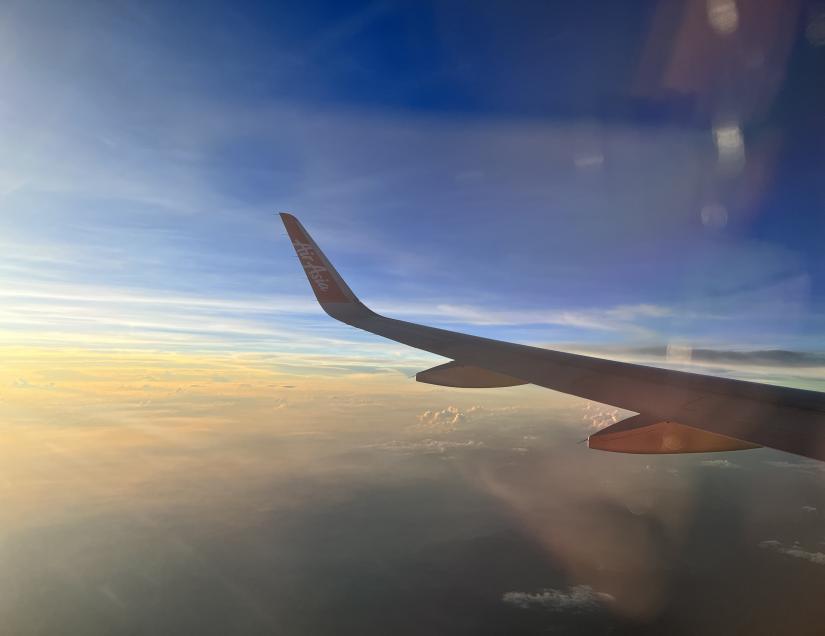
Editor: Yao Ruonan, Wang Ning, Liu Yakun, etc
